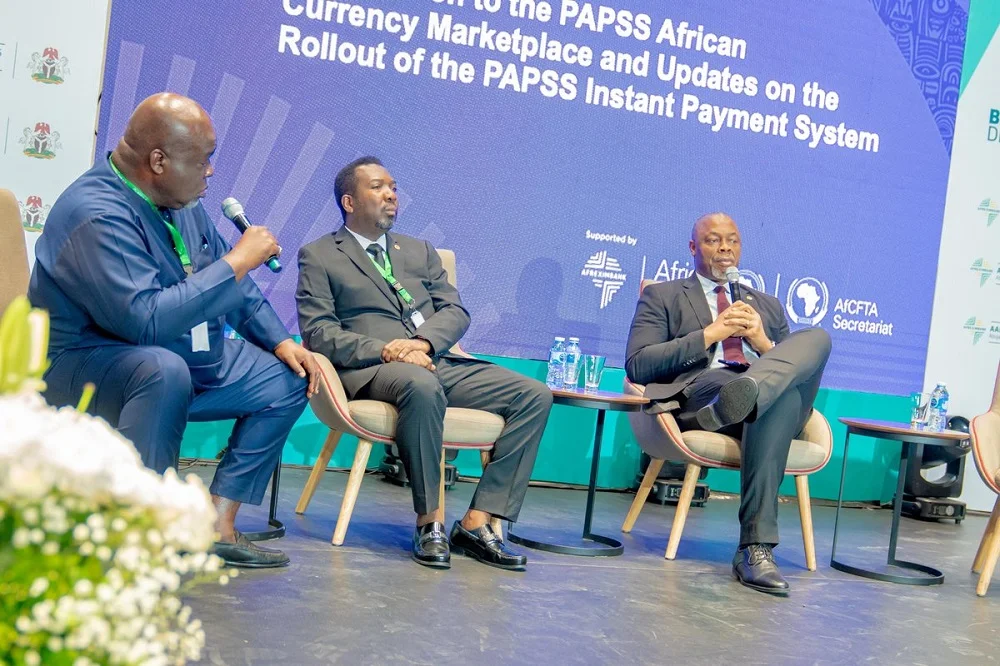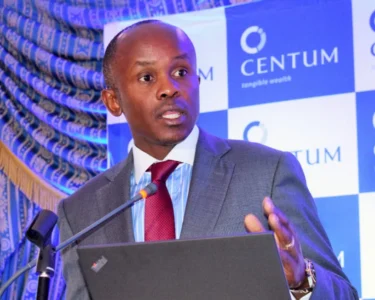By Business Express Reporter
For decades, African businesses have been forced to navigate an expensive paradox. Despite the continent’s immense entrepreneurial drive and untapped markets, its progress has been slowed by one stubborn barrier: a fragmented financial system that makes moving money across borders costly, slow, and complicated.
The lack of seamless currency convertibility has long compelled traders to rely on third-party hard currencies like the US dollar and the euro. This workaround has drained an estimated Sh646.03 billion ($5 billion) from the continent each year in fees, delays, and lost opportunities—capital that could otherwise fuel growth, jobs, and innovation.
Now, Africa is poised to turn the page. The launch of the PAPSS African Currency Marketplace (PACM) at the 2025 Afreximbank Annual Meeting in Abuja, Nigeria, marks a watershed moment in the continent’s pursuit of financial sovereignty. Developed by the Pan-African Payment and Settlement System (PAPSS) in partnership with Interstellar, a leading deep-tech firm, PACM directly tackles the currency convertibility crisis that has undermined the promise of the African Continental Free Trade Area (AfCFTA).
A Break from Costly Workarounds
Africa is home to 41 distinct national currencies, each entangled in its own regulatory framework. For businesses trading across borders, this meant navigating a web of restrictions and depending on external currencies to complete even basic transactions. PACM changes this equation by enabling real-time, direct exchange of African currencies without routing through intermediaries.
For airlines, manufacturers, insurers, and SMEs, this could be game-changing. Take Kenya Airways (KQ), which earns millions in naira from its Nigerian operations but has historically struggled to repatriate those funds due to currency restrictions. With PACM, KQ can instantly convert naira into Kenyan shillings, unlocking capital that was previously stuck in regulatory bottlenecks.
Already, early adopters such as ZEP-RE (PTA Reinsurance Company) and Access View Africa have completed transactions during PACM’s pilot phase, which tested 12 currency pairs and included over 80 major African corporations.
Technology Built for Africa
At the core of PACM is Interstellar’s blockchain-agnostic infrastructure, designed to be both highly secure and scalable. “African currencies deserve a better place in the world,” said Ernest Mbenkum, CEO of Interstellar. “With this marketplace, local money doesn’t just move—it creates opportunity.”
This architecture ensures not only speed and safety but also compliance with national financial regulations, an essential factor in gaining broad adoption across diverse economies.
Unlocking Trapped Capital
The potential ripple effects are enormous. Airlines alone are estimated to have over Sh258.41 billion ($2 billion) in trapped revenues across African markets. Reinsurance firms, cross-border manufacturers, and small businesses have long faced similar frustrations. By creating a unified liquidity pool, PACM allows these funds to circulate freely, generating new efficiencies and stimulating trade.
“PACM is more than a payments platform—it’s a liquidity engine for the continent,” said Mike Ogbalu III, CEO of PAPSS. “This is about building financial infrastructure that is sovereign, seamless, and truly African.”
Global Eyes on Africa’s Experiment
The innovation has already begun to attract international interest, with external institutions exploring ways to plug into the ecosystem. Their attention underscores PACM’s potential not just as an African solution but as a model for regional financial cooperation worldwide.
As PACM scales to banks, corporations, and financial institutions across Africa, one thing is clear: the era of fragmented, costly currency exchanges is fading. The real question now is not whether Africa can unify its financial flows—but how quickly this marketplace will accelerate the continent’s economic ascent.






